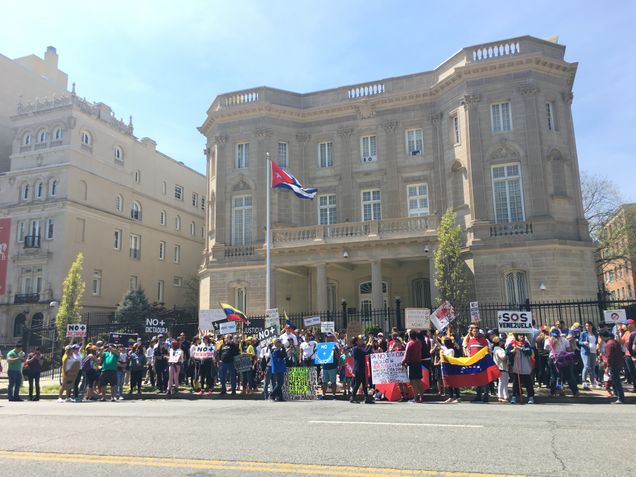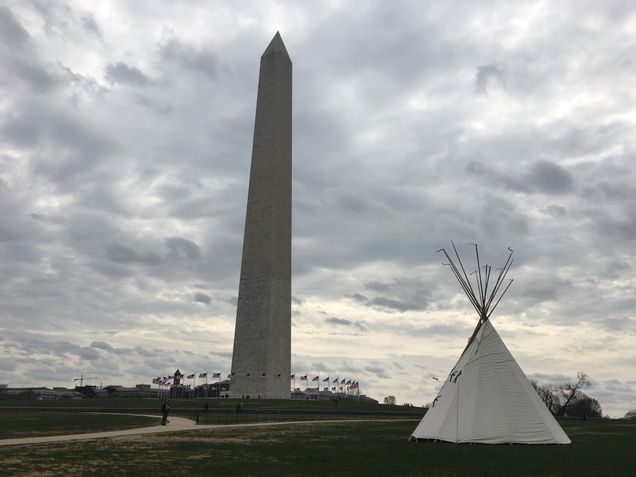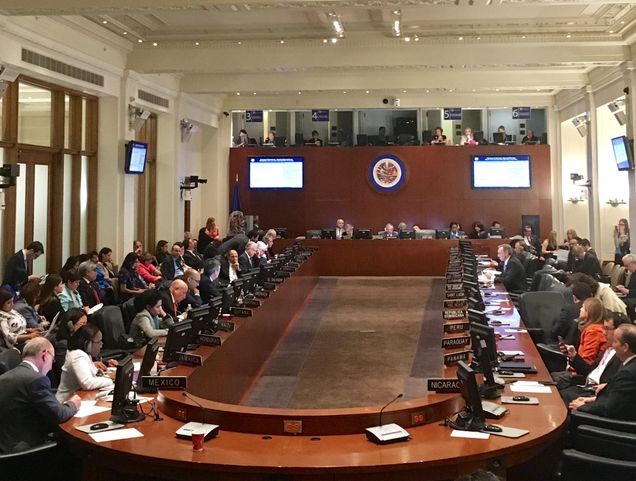Washington, D.C. as an inherent place for global advocacy
by Goldy Fogel (Spring 2017)
To some, the D.C. culture is known to be very traditional, institutionalized, and formal, to some degree. I had never been to D.C. before I ventured out on this amazing semester, and, as a complete foreigner to this country, my (mostly wrong) expectations of the Washington culture revolved pretty much around politics, the media, and government. However, after the experiences of these four months, I can say that a unique way in which Washington communicates its diversity is by constantly raising its voice in regards to prominent issues. What surprised me the most is that the issues that people advocate for (or against) are not limited to government, local, or even national problems. The advocacy transcends the borders of the United States, and brings to a local level the discussion of foreign issues as well.

Venezuelans protested outside the Cuban embassy in D.C. on April 15
As an incredibly influential and global city, D.C. has groups of protesters for possibly every issue you can think of, and these groups actively push to express the changes they are looking for. On any given day, you will most likely encounter a group out in the street or an organization holding a discussion about an issue. Some of the protests I personally got to experience while in D.C. had all different perspectives: local, national, and even international.

Native Americans set a Tipi camp by the Washington Monument as an act of protest against the North Dakota Access Pipeline
For example, at the national level, I encountered a symbolic Native American Tipi camp settled at the Washington Monument in March, as a message of protest against the North Dakota Access Pipeline. I also got to talk to a few immigrant kids that traveled all the way from Miami in a caravan to protest outside the White House. Their ultimate message was to ask President Trump to not split up their families.

The OAS in session to discuss the crisis in Venezuela
At the international level, with some many embassies and foreign organizations in the city, people from different countries often appeal to Washington leaders to get a U.S. reaction towards a foreign conflict. For example, the Organization of American States actively discussed implementing sanctions to Venezuela’s undemocratic regime, while Venezuelans in Washington protested outside places such as the Cuban embassy and the Venezuelan embassy.
From the Women’s March to the March for Science and the May Day protests, all the way to the homeless person that stands outside the White House holding a sign, it’s easy to understand how people in Washington don’t keep their issues to themselves. People go out and stand for what they care about, and they do so freely and peacefully. This last point might seem obvious. Yet, the right to peacefully assemble is also characteristic of D.C., the United States, and its constitution, and sadly many other countries don’t get to experience it in the same way.
Goldy is a senior studying journalism and interning at Voice of America

